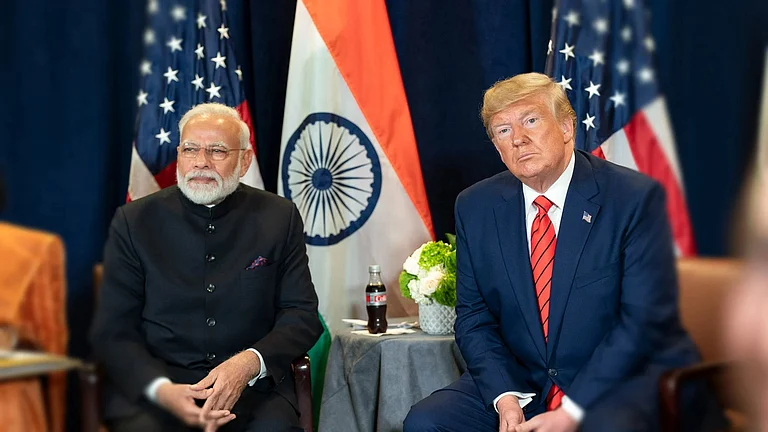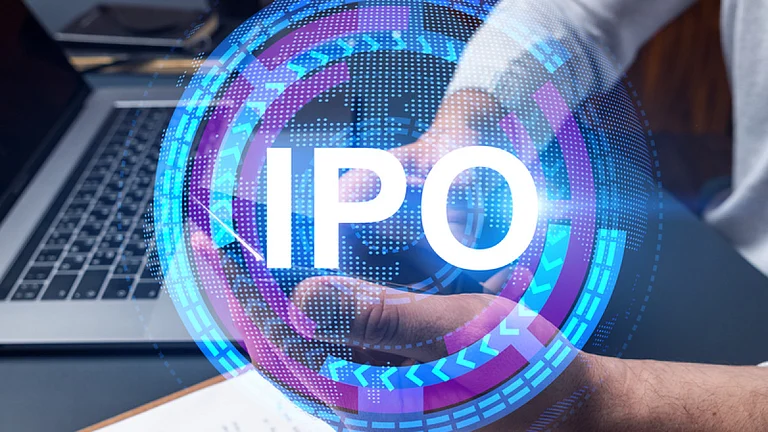Mukesh Ambani, who took over the reins of Reliance Industries Ltd (RIL) after the sudden demise of his legendary industrialist father Dhirubhai Ambani, completes 20 years at the helm during which the company saw a 17-fold jump in revenues, 20-times surge in profit and has become a global conglomerate.
Following Dhirubhai's death in 2002, Mukesh and his younger brother Anil assumed joint leadership of Reliance. While the elder brother took over as the chairman and managing director, Anil was named vice chairman and joint managing director.
The brothers, however, feuded over control, leading to a split with Mukesh assuming control of the gas, oil, and petrochemicals units as RIL, while Anil got telecommunications, power generation, and financial services units through a demerger.
In 20 years that Stanford University-drop out Mukesh, 65, has been at the helm of RIL, the company has re-entered the telecom business, diversified in retail and new energy, and raised a record Rs 2.5 lakh crore selling minority interests during the Covid lockdown.
Here is Mukesh Ambani's journey in numbers at the helm of Reliance Industries:
- Market capitalization grew at an annualized rate of 20.6 per cent in the last 20 years from Rs 41,989 crore in March 2002, to Rs 17,81,841 crore in March 2022.
- Revenues grew at an annualized rate of 15.4 per cent from Rs 45,411 crore in FY 2001-02, to Rs 792,756 crore in FY 2021-22.
- Net profit grew at an annualized rate of 16.3 per cent from Rs 3,280 crore in FY 2001-02, to Rs 67,845 crore in FY 2021-22.
- Exports grew at an annualized rate of 16.9 per cent from Rs 11,200 crore in FY 2001-02, to Rs 254,970 crore in FY 2021-22.
- Total assets grew at an annualized rate of 18.7 per cent from Rs 48,987 crore in March 2002, to Rs 14,99,665 crore in March 2022.
- Net worth grew at an annualized rate of 17 per cent from Rs 27,977 crore in March 2002, to Rs 645,127 crore in March 2022.
- RIL added Rs 17.4 lakh crore to investor wealth during these two decades, which is an average of Rs 87,000 crore every year.
According to Motilal Oswal's 26th annual wealth creation study, the company has emerged as the largest wealth creator, over 2016-21, creating wealth to the tune of nearly Rs 10 lakh crore and breaking its own previous record.
Reliance Industries' Diversification
Reliance started several new businesses in these two decades - telecom arm Jio started operations in 2016, retail in 2006, and new energy in 2021.
From a single oil refinery in 2002, Jamnagar is now the world's largest single-location refining complex. During this period, RIL doubled oil refining capacity, adding the unique capability to convert the worst of crude oils into the best of exportable fuels. It also added some of the world's largest downstream units.
Its traditional business of petrochemicals too flourished and expanded many-fold in the last two decades.
Reliance's oil and gas exploration (E&P) business made the first hydrocarbon discovery in late 2002 and production started in 2009. The firm got UK's bp plc as an investor in the E&P business in 2011 and in recent months, it brought to production the second set of discoveries.
RIL brought bp, one of the global petroleum industry leaders, as a partner in its Indian fuel retailing business. Reliance Mobility Solutions has brought the latest technology and offerings for consumers at petro-retail outlets through the Jio-bp brand. It aims to offer a new experience in buying fuel with high-quality service and making the retail outlets future-ready with charging and battery swap facilities.
Reliance set the foundation for New Energy Business committing over Rs 75,000 crore investment in three years to set up five uniquely integrated Giga Factories at Jamnagar with the world's latest technology. This will have a first-of-its-kind 'quartz-to-module' solar panel facility. The ultimate aim is to emerge world's lowest-cost producer of solar energy and green hydrogen.
Reliance has set a target to become Net Carbon Neutral by 2035, contributing to India's net carbon zero mission. It will start 10GW of solar PV cell and module factory by 2024, to be scaled up to 20GW by 2026. By 2025, RIL plans to generate its entire round-the-clock (RTC) power and intermittent energy for Green Hydrogen from captive solar power plants.
RIL's Fundraising
Reliance set a record for capital fundraising in FY21. It raised more than Rs 2.5 lakh crore through a rights issue and minority stake sales in Jio Platforms and Reliance Retail Ventures to global marquee investors such as Facebook and Google. During FY2021, Reliance was the single-largest foreign direct investment (FDI) generator for India.
After the launch of Jio, India became the data capital of the world and the cost of data/GB fell from Rs 500 to Rs 12. India's ranking in Broadband data consumption moved from 150 in 2016 to No.1 in 2018 thanks to Jio.
Born in Aden, Yemen, where his father worked as a gas station attendant, Mukesh Ambani earned his bachelor's degree in chemical engineering from the University of Bombay (now the University of Mumbai) and subsequently pursued a master's degree in business administration from Stanford University.
He, however, left the program in 1981 to join the family business, where he worked to diversify the company, foraying into communications, infrastructure, petrochemicals, petroleum refining, polyester fibres, and oil and gas production.
In 2007, he became India's first rupee trillionaire. He, however, has lost the richest Indian tag to a fellow Gujarati businessman, Gautam Adani in recent months.
Reliance Foundation, backed by Reliance Industries, came up in 2010 to spearhead the company's philanthropic initiatives under the leadership of his wife Nita. It works in the areas of rural empowerment, nutrition security, ecological conservation, education, and sports.
Reliance Foundation is India's biggest corporate social responsibility initiative by reach, as well as by spend.


























.jpg?w=200&auto=format%2Ccompress&fit=max)




